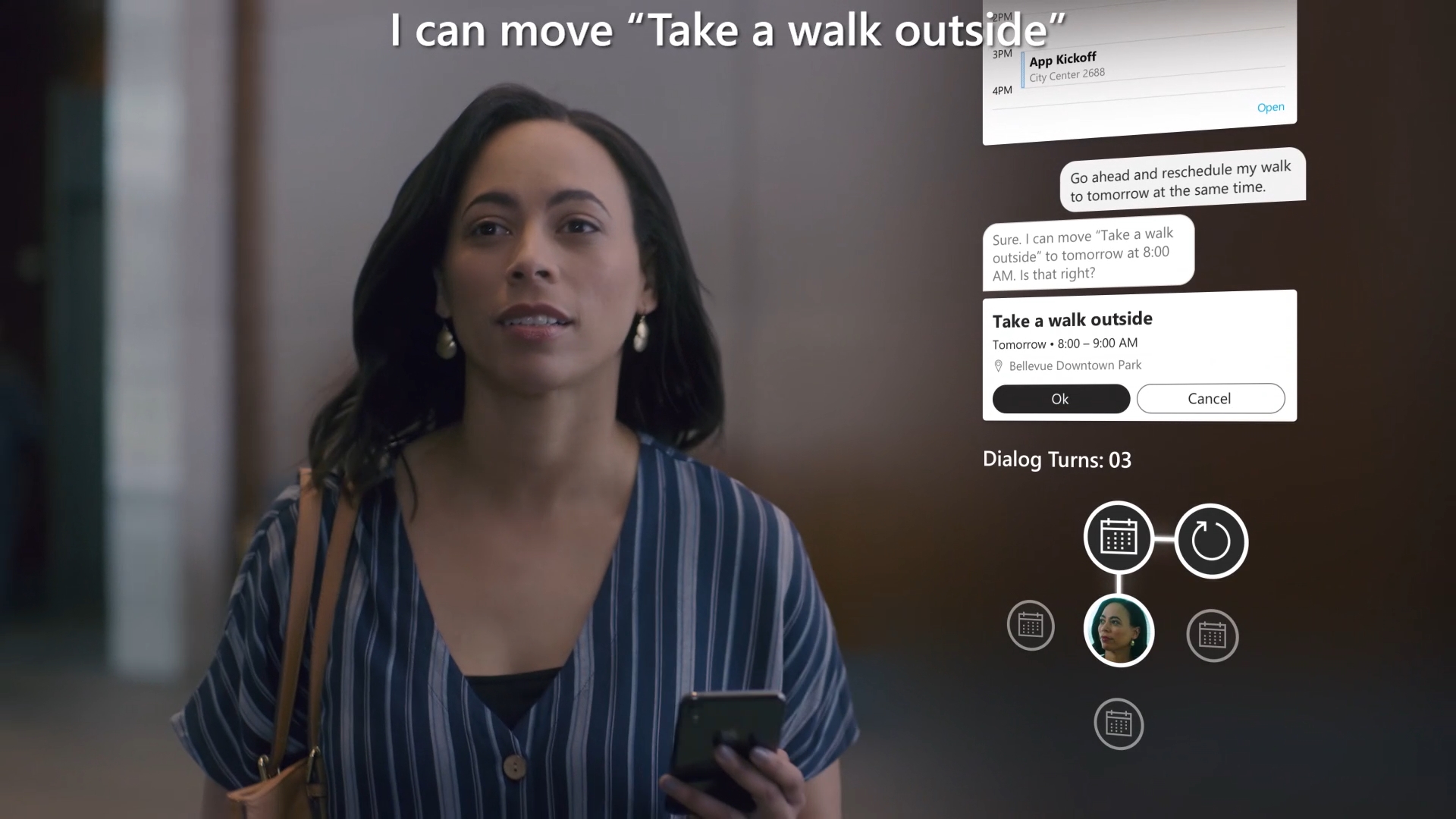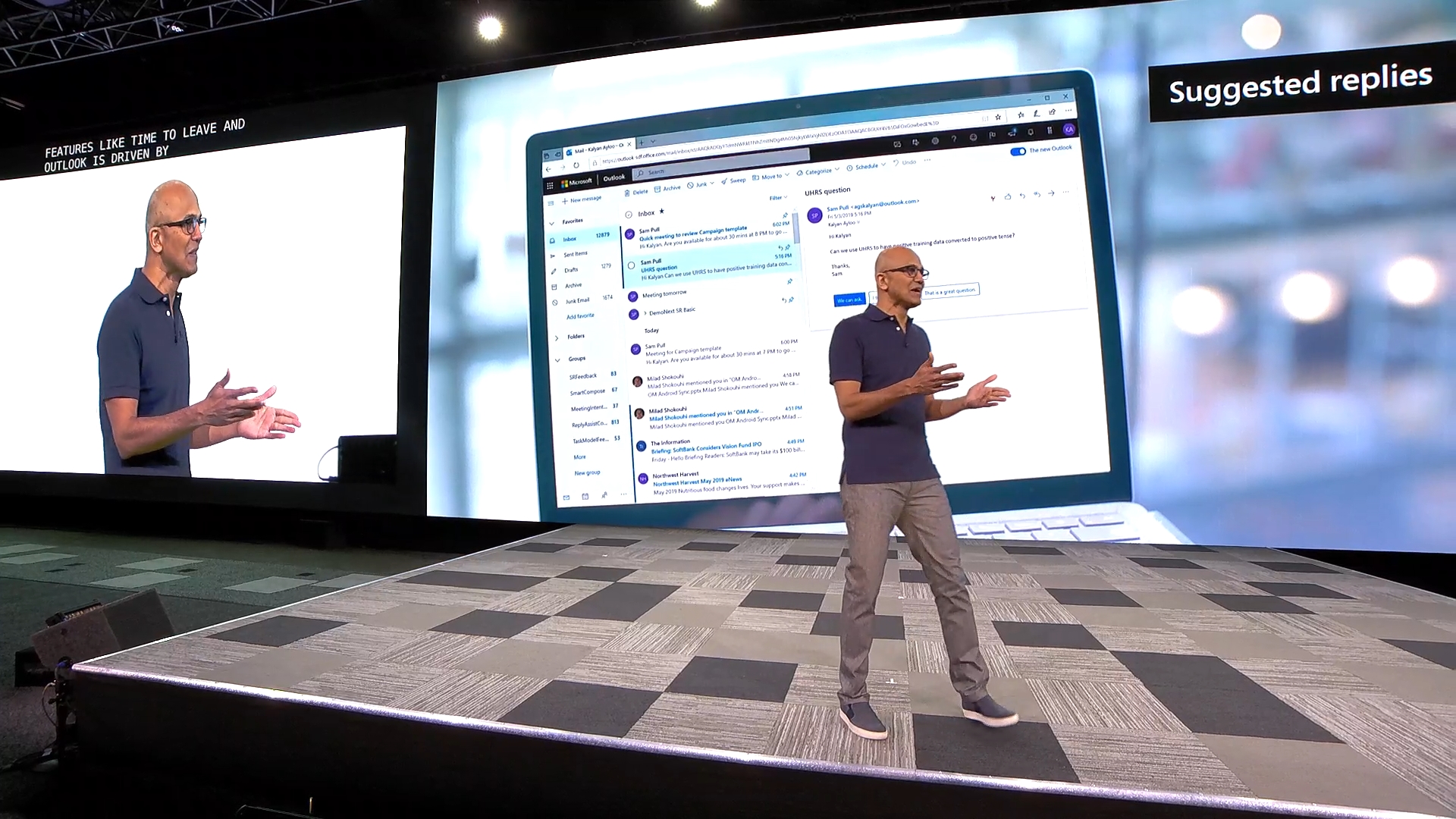Cortana could soon be the best digital assistant – with a little help from friends
Analysis: the true personal assistant we’ve always wanted

Sign up for breaking news, reviews, opinion, top tech deals, and more.
You are now subscribed
Your newsletter sign-up was successful
Opening up access to Cortana to third-party hardware, and Windows 10 to competing services like Amazon’s Alexa, seemed like the death knell for Microsoft’s digital assistant at the time. After its Build 2019 conference in Seattle, Washington, this is looking like one of Microsoft’s most ingenious plays yet.
During its conference, Microsoft announced that Cortana will soon gain conversational artificial intelligence (AI), meaning that it will be able to hold entire conversations with end users to enact more complex tasks than ever before. This is thanks to work by Semantic Machines, a recent Microsoft acquisition focused on contextual, multi-tasking voice-based AI.
However, that’s just the tip of this iceberg.
By opening Cortana up to both developers and digital assistant skills provided by competing services, i.e. Amazon Alexa, Microsoft's Cortana is setting itself up to be the digital assistant that follows you across all the devices and platforms you use between work and leisure.
As Cortana becomes what Microsoft calls an ‘intelligent agent,’ the same digital assistant you use to manage your work calendar from your workstation could be the same one you use to find the best route to the hiking trail this weekend from your iPhone – as well as the best restaurants nearby to wind down afterward. Sure, this is possible already today, but not nearly as seamlessly as Microsoft is purporting it will work.
The digital assistant becomes your personal assistant
Based on what Microsoft has shown off today, both in marketing materials and on the Build 2019 show floor, Cortana will ingest functionality from not just third party skills but also third party assistants developed with skills that Cortana isn’t even directly compatible with.
In the same conversation with Cortana to schedule a lunch meeting at a restaurant and juggling availability between guests, you may also want reviews of that restaurant. You will theoretically be able to ask Cortana for that information mid-conversation. And, if Cortana can’t get that information on its own, it could make contact with a third party-developed digital assistant that wasn’t even developed with Cortana in mind.
Sign up for breaking news, reviews, opinion, top tech deals, and more.
An easier way to think of this is Cortana effectively acts like a personal assistant, making various phone calls and acting out other tasks on your behalf, working with third parties (e.g. the local flower shop or limousine service) to get those things done.
Here’s an example of it working from the other end: BMW has designed an in-car experience that uses its own digital assistant in conjunction with Cortana skills via Microsoft’s Azure cloud service over LTE connection. During a live demonstration, we saw the experience use skills that Microsoft has developed that BMW has no business working on, like to-do lists.
Alternatively, we could easily see Cortana accessed on a device using skills in Alexa’s base, like product review aggregation, to present someone with the best hair dryers on Amazon when asking Cortana which they should buy.

The high hurdles ahead
Of course, this grand vision for truly intelligent digital assistants relies rather heavily on service and product makers across countless categories investing development into digital assistants of their own. If they don’t, then Microsoft won’t have much to work with.
Luckily, bots or digital assistants are gaining major traction within more tech-savvy product and service providers. However, what does that say for the third-party devices that work with Cortana today, particularly iPhones and (to a far lesser degree) Android phones?
Apple’s iOS is historically restrictive when it comes to allowing system-level functions to interact with third-party apps and services, much less apps interacting with one another, though it has lightened up on the former considerably. It’s likely that Apple will have to loosen its grip on these kinds of inter-app functions even further if Microsoft’s vision for the Cortana intelligent agent is to truly blossom.
Have the platform holders embraced as open an ideology as Microsoft has, so as to enable its vision? Nothing better to put that to the test than some potentially transformative technology. Should everyone open up, we could all benefit from digital assistants that truly grow to become personal assistants, namely Cortana.
- All the best laptops run Cortana out of the box – except for MacBooks

Joe Osborne is the Senior Technology Editor at Insider Inc. His role is to leads the technology coverage team for the Business Insider Shopping team, facilitating expert reviews, comprehensive buying guides, snap deals news and more. Previously, Joe was TechRadar's US computing editor, leading reviews of everything from gaming PCs to internal components and accessories. In his spare time, Joe is a renowned Dungeons and Dragons dungeon master – and arguably the nicest man in tech.